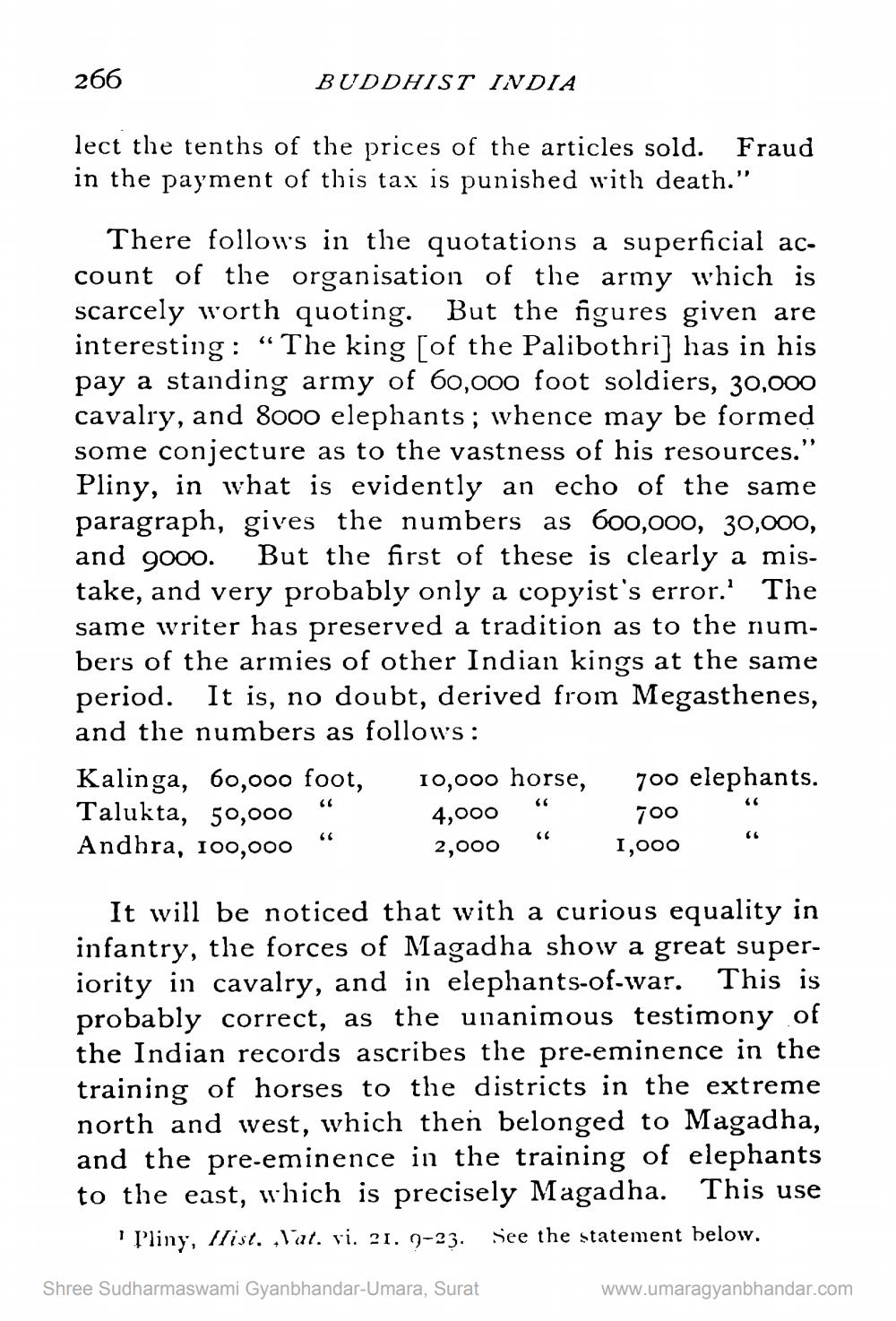________________
266
BUDDHIST INDIA
lect the tenths of the prices of the articles sold. Fraud in the payment of this tax is punished with death."
There follows in the quotations a superficial account of the organisation of the army which is scarcely worth quoting. But the figures given are interesting: “The king (of the Palibothri] has in his pay a standing army of 60,000 foot soldiers, 30,000 cavalry, and 8000 elephants; whence may be formed some conjecture as to the vastness of his resources." Pliny, in what is evidently an echo of the same paragraph, gives the numbers as 600,000, 30,000, and 9000. But the first of these is clearly a mistake, and very probably only a copyist's error. The same writer has preserved a tradition as to the numbers of the armies of other Indian kings at the same period. It is, no doubt, derived from Megasthenes, and the numbers as follows: Kalinga, 60,000 foot, 10,000 horse, 700 elephants. Talukta, 50,000“ 4,000 " 700 " Andhra, 100,000" 2,000 " 1,000
It will be noticed that with a curious equality in infantry, the forces of Magadha show a great superiority in cavalry, and in elephants-of-war. This is probably correct, as the unanimous testimony of the Indian records ascribes the pre-eminence in the training of horses to the districts in the extreme north and west, which then belonged to Magadha, and the pre-eminence in the training of elephants to the east, which is precisely Magadha. This use
'Pliny, Hist. Vat. vi. 21. 9-23. See the statement below.
Shree Sudharmaswami Gyanbhandar-Umara, Surat
www.umaragyanbhandar.com




